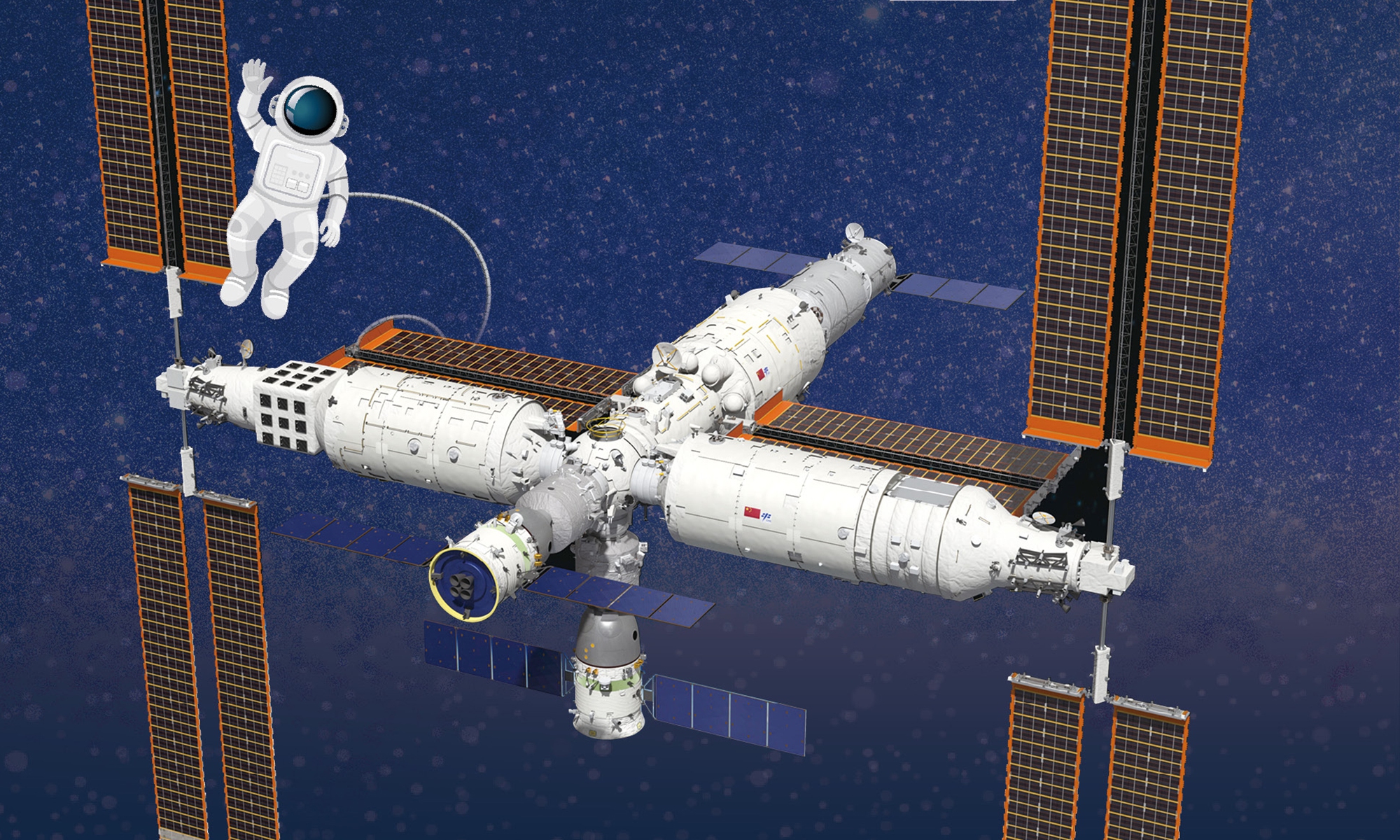
China Space Station
"We cannot speculate on why it has taken so long to get clearance or what the issues are," said Jayant Murthy, a senior Indian astrophysicist and manager of a project dubbed the first-ever space technology collaboration between China and India. It was expected to be the first international payload to go to the China Space Station but it has now hit a roadblock, with the key equipment produced by India for the China Space Station waiting for export clearance from the Indian Ministry of External Affairs (MEA) indefinitely.
"As far as we're concerned, we are ready to fly to the China Space Station. Our equipment is ready and we just have to settle on interface issues with the program," Jayant Murthy, a senior professor at the Bangalore-based Indian Institute of Astrophysics who oversees the project, told the Global Times in an exclusive interview on Tuesday.
"As you might expect, we will require formal approval from our Indian MEA to send any complex equipment outside India, particularly when it involves a space mission. We have told the China Manned Space Agency (CMSA) about our request to the MEA and that we cannot do anything until we get clearance," the professor said.
The project of Spectroscopic Investigations of Nebular Gas, or SING, was one of the first batch of nine international scientific experiments from 17 countries and 23 research bodies that passed extensive evaluation of a team of around 60 experts from the UNOOSA (United Nations Office for Outer Space Affairs), the CMSA and the international space community in June 2019.
SING is implemented by two institutions from two countries - The Indian Institute of Astrophysics and the Institute of Astronomy of the Russian Academy of Sciences.
An application for the export license for the SING equipment was submitted by a team from the Indian Institute of Astrophysics in Bangalore last year.
Asked if scientists have been notified by the Indian authority on why the export license has been put on hold, Murthy said, "We have no information on the progress of our request for an export license. We have had questions from the MEA and have answered them, stressing that we are a purely scientific mission with no commercial implications."
"We cannot speculate on why it has taken so long to get clearance or what the issues are," Murthy said.
"We do think it is a great opportunity to rise above whatever political issues affect daily relations between the governments and to show that we do have the ability and the will to cooperate in the cause of science," he said.
SING is an imaging spectrograph in the ultraviolet spectrum. "Ultraviolet is not observable from the ground because of the ozone layer and it is essential for us to take observations from space," Murthy said.
The goal is to observe hot gas in the galaxy, which we will be able to identify through observations of emissions from the different parts of the gas. This has to be done from above the Earth's atmosphere, Murthy noted, spelling out the significance of sending the payload to the China Space Station.
After the space station entered the application and development phase at the end of 2022, China repeatedly vowed to adhere to the development concept of openness and sharing, and carry out more and deeper pragmatic cooperation with countries and regions committed to the peaceful utilization of outer space, so that the scientific and technological achievements of China's space station will benefit all mankind.
International collaboration at the China Space Station includes sending international payloads and welcoming astronauts from other countries to enter its space station to conduct experiments, the CMSA has said.
Chinese space watcher and TV commentator Song Zhongping said that as two leading developing countries and members of the BRICS and the Shanghai Cooperation Organization, China and India should enhance cooperation in all fronts, especially in the space domain.
"If Indian authorities set roadblocks for normal scientific exchanges and politicized space collaboration at the China Space Station, it will definitely be a heavy loss for not only individual scientists in the country but also one for India's future space development," Song told the Global Times.




